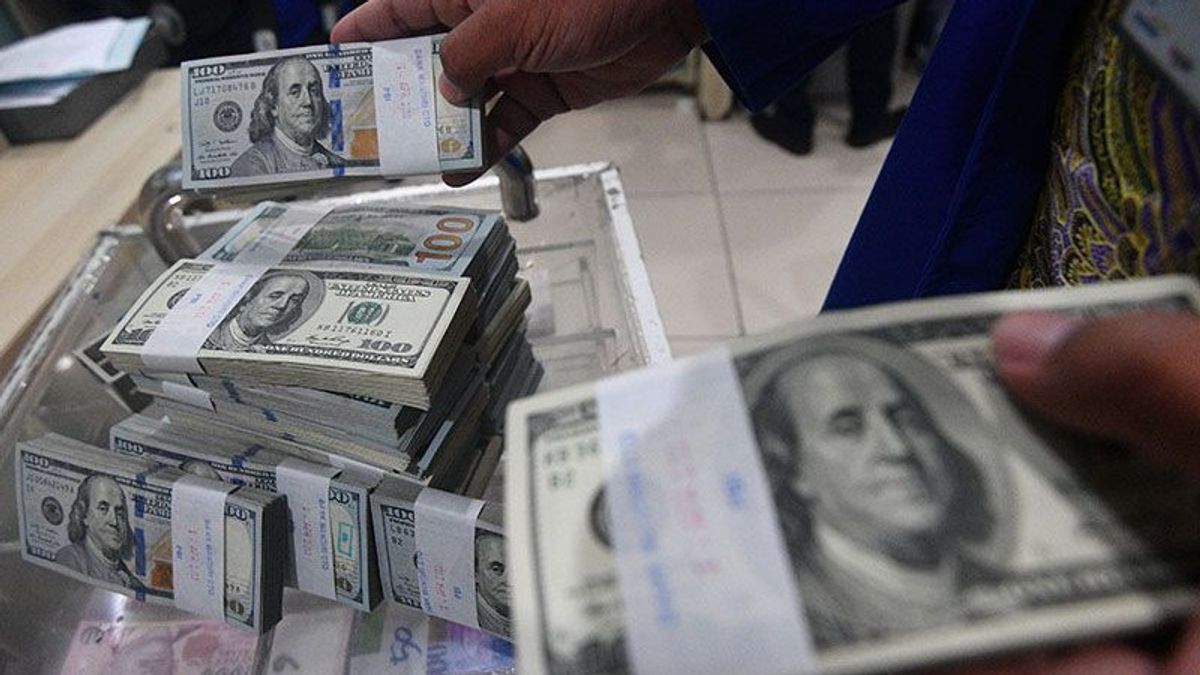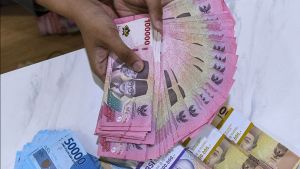JAKARTA - The Ministry of Finance (Kemenkeu) noted that the government's debt position increased again in May 2024 to IDR 8,353.02 trillion.
This figure increased by IDR 14.59 trillion or increased by around 0.17 percent when compared to April 2024 which was IDR 8,338.43 trillion.
Meanwhile, in May 2024 the ratio of government debt to Gross Domestic Product (GDP) was 38.71 percent or an increase from the debt to GDP ratio in the previous month of 38.64 percent.
The Ministry of Finance stated that the government is managing debt carefully and measurably to achieve an optimal debt portfolio and support the development of the domestic financial market.
Therefore, the debt ratio as of the end of May 2024 remained consistently maintained below the safe limit of 60 percent of GDP in accordance with Law Number 17 of 2023 concerning State Finance and continued to show a downward trend from the debt to GDP ratio in 2021 which was recorded at 40.74 percent, 2022 at 39.70 percent and 2023 at 39.21 percent and better than that set through the 2024-2027 Medium-Term Debt Management Strategy in the range of 40 percent.
In addition, the government prioritizes the procurement of medium-long-term debt and actively manages the debt portfolio.
As of the end of May 2024, the maturity profile of government debt was considered quite safe with a weighted average maturity (ATM) of 8 years.
"Disciplined debt management also supports the assessment results of credit rating agencies (S&P, Fitch, Moody's, R&I, and JCR) which until now have maintained Indonesia's sovereign rating at investment grade amidst global economic dynamics and financial market volatility," she explained in the State Budget (APBN) report, quoted Tuesday, July 2.
In line with the general policy of debt financing to optimize domestic financing sources and utilize foreign debt as a complement, the majority of government debt comes from within the country with a proportion of 71.12 percent.
Meanwhile, based on instruments, the composition of government debt is dominated by Government Securities (SBN) instruments which contribute 87.96 percent.
Until the end of May 2024, SBN issuance was recorded at IDR 7,347.50 trillion.
This issuance is divided into domestic SBN, which is 70.69 percent and foreign currency SBN (forex) of 17.27 percent.
SEE ALSO:
In the report, Domestic SBN amounted to IDR5,904.64 trillion which was divided into Government Securities (SUN) amounting to IDR4,705.24 trillion and Government Sharia Securities (SBSN) amounting to IDR1,199.40 trillion.
Meanwhile, Foreign Currency SBN amounted to IDR1,442.85 trillion with details, SUN amounting to IDR1,086.55 trillion and SBSN amounting to IDR356.30 trillion.
In addition, the government debt also came from government loan debt, which was 12.04 percent or IDR1,005.52 trillion with details of domestic loans amounting to IDR36.42 trillion and foreign loans amounting to IDR969.10 trillion.
As for foreign loans, the details are bilateral loans amounting to IDR265.83 trillion, multilateral loans of IDR584.65 trillion, and commercial bank loans of IDR118.62 trillion.
The Ministry of Finance explained that an efficient SBN market will increase the resilience of the Indonesian financial system to economic and financial market shocks. With debt financing activities through SBN issuance, the government also supports the development and deepening of the domestic financial market.
"SBN also provides a reference for determining the price of other financial market instruments and is used by market players to manage interest rate risk," he wrote.
As of the end of May 2024, financial institutions held around 41.9 percent of domestic SBN ownership, consisting of banking 22.9 percent and insurance companies and pension funds 18.9 percent.
Meanwhile, for financial institutions, SBN plays an important role in meeting investment needs and liquidity management, as well as being one of the risk mitigation instruments.
For information, domestic SBN ownership by Bank Indonesia is around 22.2 percent, which is used, among other things, as a monetary management instrument.
Meanwhile, foreigners only have around 14.1 percent of domestic SBN, including ownership by the government and foreign central banks.
In line with the government's efforts to expand the investor base, financial inclusion and increase public financial literacy from a savings society to an investment society, individual investor ownership in domestic SBN has continued to increase since 2019, which was just under 3 percent to 8.5 percent by the end of May 2024.
"The remaining ownership of domestic SBN is held by other domestic institutions to meet the investment and financial management needs of the relevant institutions," she said.
The English, Chinese, Japanese, Arabic, and French versions are automatically generated by the AI. So there may still be inaccuracies in translating, please always see Indonesian as our main language. (system supported by DigitalSiber.id)
















